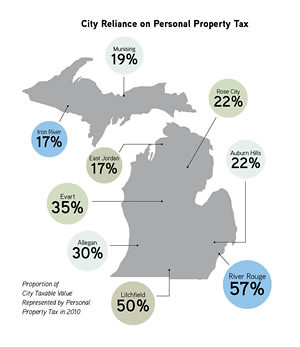In November 2009 I wrote a diary titled the
Fragile Climate of Fruit Growing Perfection. In in I talked about West Michigan's ideal microclimate for fruit production and how fragile those perfect conditions are. Well...this year we're seeing a catastrophic collapse in West Michigan's fruit production due to weeks of record breaking high temperatures in late February to mid March combined with a winter without a prolonged hard frost.
Sure sure...everybody knows Michigan and manufacturing. Michigan and cars. Michigan and the factory, machinist thing. Yadda yadda. That's there.
But the Michigan I know is also the Michigan among the top fruit producing regions in American. Michigan, a major producer of tart cherries, blueberrries, apples, juice grapes, pears, peaches, plums, strawberries, raspberries, asparagus, the leading producer of black beans and second largest producer of dried beans. West Michigan is peppered with city and street names like Fruitport, Fruitland Township, Fruitvale road, Orchard View...
The Farmer's market overflows with an amazing variety of local, seasonal produce and my wife has a cherry jam to die for that includes no fewer than seven varieties of local cherries.
But this year, all along the West Michigan coastline, the strange weather this year has devestated the crops....
We didn't have a prolonged hard frost this winter. It was warm. Very little ice or snow....ALL. WINTER. LONG.
Blueberries:
Because of the warm winter the blueberries didn't go into a period of dormancy. That means that many areas are likely to have very unproductive blueberries this year.

But because of the record breaking March weather, many of the fruit crops bloomed early....
....too early.
And are now getting killed by hard frosts.
Juice Grapes:
Frost wipes out juice grapes in southwest Michigan
A devastating frost has wiped out grapes grown for juice in southwestern Michigan.
John Jasper, a surveyor for Welch’s Foods, tells Channel 57 that he went through hundreds of acres before even finding a live bud. He estimates more than 10,000 acres were destroyed Thursday, mostly in Berrien, Cass and Van Buren counties.
Jasper says Welch’s gets approximately 17% of its grapes from southwestern Michigan. He says the company could be forced to change recipes for some products.
"The apple crop at Kercher's Sunrise Orchards in Goshen was also heavily damaged, the owner told us Sunday."
Tart Cherries:
NW Michigan Cherry Crop Takes Hit After Record-Busting March; 50-70% Of Fruit Lost In Hard Freeze
A hard freeze has wiped out a big portion of the cherry crop in Northwest Michigan this spring. The area produces more than half the state’s cherries that end up in desserts, juice and as dried fruit.
 Asparagus:
Asparagus:
Asparagus came up early, far before the migrant workers who usually pick it start to show up. Farmers are scrambling to find locals willing to pick asparagus....but you'll notice I'm sitting here blogging instead of traveling 40 miles to the north to pick asparagus.
Strawberry farmers,
apricot farmers, apple and peach farmers....everybody is getting hit.
Mark Longstroth, a fruit educator at the Michigan State University Extension, said half an hour at 28 degrees around bloom time will cause damage and half an hour at 25 degrees could take 90 percent of the crop
Fruit production is a major economic driver in West Michigan, and was one of the few stable and even growing spots during the decade long Michigan recession. This year the entire region and fruit growing industry is getting hit hard.
Michigan's fruit growers are going to need some Federal relief to make it through to the next year.
This is our food supply, folks.


